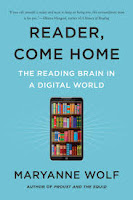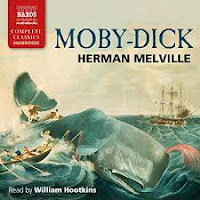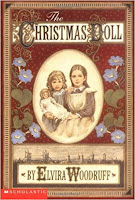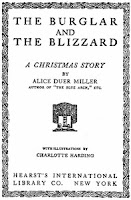Reader, Come Home by Maryanne Wolf
Reader, Come Home; Bartleby the Scrivener; Grandma Says
Moby Dick
Moby Dick by Herman Melville
I had no idea when I started this what I was in for, except that it was long, and for that reason alone I chose an audio version. I hadn't read reviews because I'd always seen it listed as an adventure story for boys and thought I knew what to expect, but those versions must have been abridged because there is simply no way the unabridged version would hold the attention of most boys. If it was only the story of Ahab and the whale, sure, but there is more, much more.
After a few chapters of story, he turns off down detailed rabbit trails - they are essays really - on subjects like: breeds of whales and their migration patterns and feeding habits; the anatomy of whales with details of their respiratory systems, brains, bone structure, vision, and skin; whaling laws in different countries; types of boats; even varieties of rope and coiling methods for various purposes. It's a lot.
The narration on this one is wonderful. William Hootkins makes every character unique, so you easily recognize each one as they speak, and he is so expressive you come away with the feeling you've watched a play. The characters are believable and the plot - as far as the whaling story goes - is exciting. Even the essays are interesting in their way, if only there weren't so darn many of them.
The thing that kept me going, and what, to me, makes this book great, is the writing. His use of the English language, his similes and metaphors, his sentences - all are absolutely beautiful. He's wordy, yes, philosophizing about the life lessons found in every aspect of boating and whaling he discusses, but he's lyrical too, as in this passage:
"...we account the whale immortal in his species, however perishable in his individuality. He swam the seas before the continents broke water, he once swam over the sight of the Tuilelrie ,and Windsor Castle, and The Kremlin. In Noah's flood he despised Noah's ark and if ever the world is to be again flooded, like the Netherlands to kill off its rats, then the eternal whale will still survive, and rearing upon the topmost crest of the equatorial flood, shout his frothed defiance to the skies."
The Giver
The Giver by Lois Lowry
The Rest of December's Reading
A Few Christmas Stories
Christmas on the Island by Jenny Colgan
















